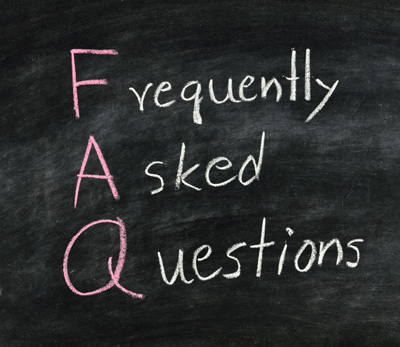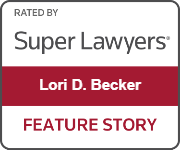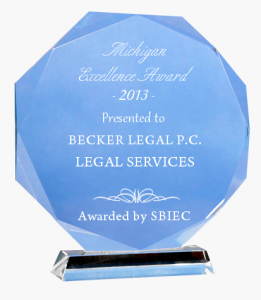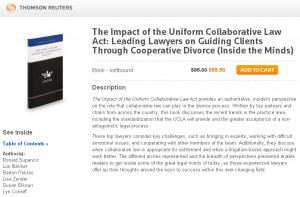Menu
FAQ’s
 Collaborative Divorce Practice
Collaborative Divorce Practice
What should I look for in an attorney?
The most important thing is to look for someone you trust. Your attorney will be helping you in a process that will shape the rest of your life. If you have any doubts or you do not trust your attorney, the entire process can be extremely stressful. The next most important quality to look for is someone who shares the same goals as you do. A lawyer who honestly wants the best for you and your family is a terrific asset when going through a legal process.
Do not hesitate to contact several attorneys before you make a decision. The right attorney for you can make all the difference when helping with a process that will affect the rest of your life.
What is the best way to avoid going to court with my divorce proceedings?
The truth is most proceedings, particularly for divorce, end in settlement and do not go to court. But in most proceedings, the majority of time and money is spent preparing for a trial that never happens. The only method which attempts to avoid court action is the Collaborative Process. The Collaborative Process involves both attorneys pledging not to file a court action, bur rather, to commit to the negotiation process. This achieves an atmosphere of cooperation and a commitment to working together.
My partner or spouse and I do not get along. Is the Collaborative Process even an option for us?
Collaborative attorneys have been trained to effectively work with couples that have considerable conflict. You will not be alone. Your attorney will be there to ensure your needs are addressed, and to facilitate negotiations with your spouse or partner. In addition to an attorney, a mental health professional or Coach is there to help you determine your priorities and to set up a strategy for how to best approach the negotiations. The Collaborative Process cannot eliminate the problems with your spouse or partner, but it will provide the best possible forum for working through those differences toward an outcome that is best for everyone.
Will I get less from the proceedings if I choose the Collaborative Process?
No. The Collaborative Process is about the process of reaching agreement, not the settlement itself. Often times, a Collaborative settlement will be nearly identical to what would have been decided in the courtroom, but it is reached with greater efficiency, fewer expenses, and a focus on the emotional issues involved.
In the Collaborative Process, your lawyer is still working for you. The difference is that you and your lawyer are working with your spouse or partner and their lawyer. This improves communication and understanding as the process develops.
I want to utilize the Collaborative Process, but my spouse or partner does not. What are my options?
In order for the Collaborative Process to work, both parties must sign a Collaborative Participation Agreement. But this does not mean your hope for a Collaborative settlement is over. Encourage your spouse or partner to at least meet with an attorney trained in Collaborative to discuss if it might be the right path for them (contact our office for a complete list of Collaborative attorneys in the area).
Who is my Collaborative Team?
Your Collaborative Team is made up of professionals who can address all of your needs. Your attorney is the first member of your Team. It is their job to guide you through the process and provide the legal expertise needed. You will also be advised by a mental health professional, called a Coach. Coaches are specifically trained in the Collaborative Process and have a lot of experience helping people through the end of marriages or partnerships. Your Coach will help you set your priorities for the negotiations, as well as helping you with strategies to ensure the most productive negotiations.
The Collaborative approach also has the flexibility to involve other professionals with expertise to assist in the negotiations. If there are any complicated financial concerns, a Financial Neutral is brought in to help sort through the finances, create budgets to ensure a stable future, and provide expert-level assessment.
If there are children involved, a Child Therapist can help manage any child custody issues in a way that ensures the healthiest outcome for the children.
If Coaches, a Financial Neutral, and a Child Specialist are all hired, how is the Collaborative Process less expensive?
The Collaborative Process still manages to be less expensive than litigation because the enormous costs of preparing for court are removed. 95% of cases end in an out-of-court settlement, but the vast majority of attorneys still wastes time and resources preparing for the “day in court” that never comes. In the Collaborative Process, we are never preparing for a court appearance; all of your team’s efforts are spent on reaching a resolution.
The Collaborative Process also saves you money because it saves time. Instead of spending time posturing and waiting for responses, as is the case in litigation, both attorneys and spouses or partners discuss the issues in efficient 4-way meetings. This set-up is designed to reduce wasted efforts and to keep the proceedings moving at your pace.
Becker Legal
What is your opinion regarding clients educating themselves on legal issues?
I absolutely encourage it. The better informed my clients are, the better attorney I can be for them.
Clients who have experiences with other attorneys appreciate the benefits of my service and have a clear understanding of the legal representation that I personally provide.
Are you willing to review documents prepared by Clients?
I encourage my clients to prepare a file explaining their position and if they have come to any prior agreements with the other party. This enables me to prepare the necessary legal documents to implement their agreements.
Are you willing to coach clients who want to represent themselves?
It is often more cost effective for the client to have their attorney properly draft those agreements into the appropriate legal documents. In the matter of divorce and family law, anything outside of the simplest uncontested matter can result in very complicated entanglements which (if it is even possible) are very costly to repair.
Why did you decide to become a lawyer?
Higher education was a tremendously high value in my family and many of us, parents and siblings are medical practitioners. I wanted to work in a field that uses my mind, but my path went in a different direction than that of my family when I decided to study law. I have never regretted the decision to go into law, though it took me a while too find the area of law about which I am truly passionate.
I have a great deal of corporate legal experience from my time in a large firm, focused on product liability defense litigation. This is exactly opposite of the work I do now, which is far more personal and complex and allows me to have a very different (and I feel better!) relationship with my clients.
Collaborative law allows me to deliver the highest level of help. Special training in Collaborative Law and my certification as a Mediator, blended with years of experience with domestic violence counseling have allowed me to focus my ability to listen and negotiate in powerful and helpful ways, even under extreme circumstances.
What do you like best about your career?
Watching my clients grow and get stronger in an otherwise damaging experience.
Tell me about your law firm.
I founded Becker Legal in 2002 when I decided to leave a very large, 120 attorney firm to start my own firm to better meet the needs of my clients. Aiding in the success of my clients is what matter most.
What are your strengths and style?
I am a very strong listener and negotiator. I seek to implement creative solutions to problems, allowing everyone to feel they have achieved their goals.











 Lori D. Becker is featured on Super Lawyers.
Lori D. Becker is featured on Super Lawyers.